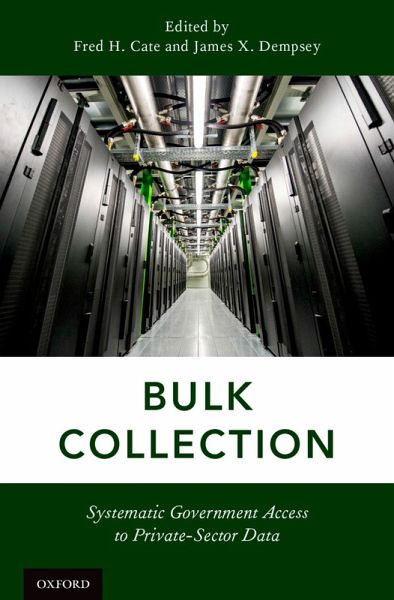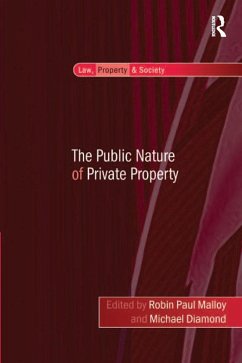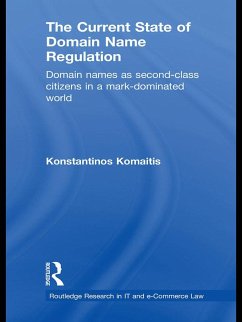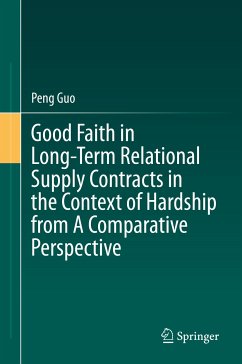
Bulk Collection (eBook, PDF)
Systematic Government Access to Private-Sector Data
Redaktion: Cate, Fred H.; Dempsey, James X.

PAYBACK Punkte
0 °P sammeln!
This is an open access title available under the terms of a CC BY-NC-ND 4.0 International licence. It is free to read at Oxford Scholarship Online and offered as a free PDF download from OUP and selected open access locations. This book is the culmination of nearly six years of research initiated by Fred Cate and Jim Dempsey to examine national practices and laws regarding systematic government access to personal information held by private-sector companies. Leading an effort sponsored by The Privacy Projects, they commissioned a series of country reports, asking national experts to uncover wh...
This is an open access title available under the terms of a CC BY-NC-ND 4.0 International licence. It is free to read at Oxford Scholarship Online and offered as a free PDF download from OUP and selected open access locations. This book is the culmination of nearly six years of research initiated by Fred Cate and Jim Dempsey to examine national practices and laws regarding systematic government access to personal information held by private-sector companies. Leading an effort sponsored by The Privacy Projects, they commissioned a series of country reports, asking national experts to uncover what they could about government demands on telecommunications providers and other private-sector companies to disclose bulk information about their customers. Their initial research found disturbing indications of systematic access in countries around the world. These data collection programs, often undertaken in the name of national security, were cloaked in secrecy and largely immune from oversight, posing serious threats to personal privacy. After the Snowden leaks confirmed these initial findings, the project morphed into something more ambitious: an effort to explore what should be the rules for government access to private-sector data, and how companies should respond to government demands for access. This book contains twelve updated country reports plus eleven analytic chapters that present descriptive and normative frameworks for assessing national surveillance laws, survey evolving international law and human rights principles applicable to government surveillance, and describe oversight mechanisms. It also explores the concept of accountability and the role of encryption in shaping the surveillance debate. Cate and Dempsey conclude by offering recommendations for both governments and industry.
Dieser Download kann aus rechtlichen Gründen nur mit Rechnungsadresse in A, B, BG, CY, CZ, D, DK, EW, E, FIN, F, GR, HR, H, IRL, I, LT, L, LR, M, NL, PL, P, R, S, SLO, SK ausgeliefert werden.













